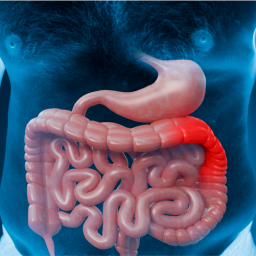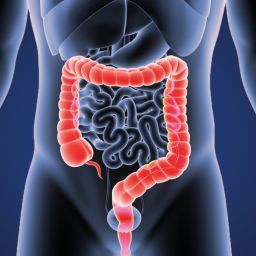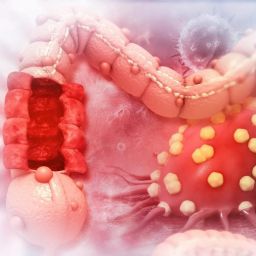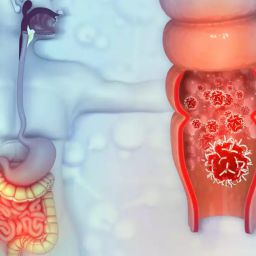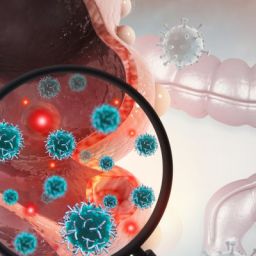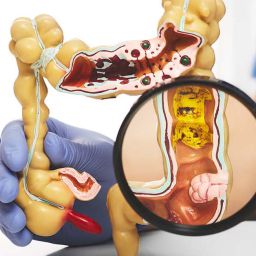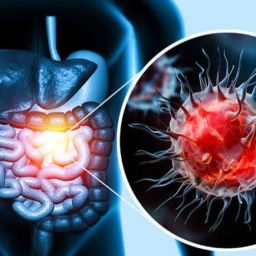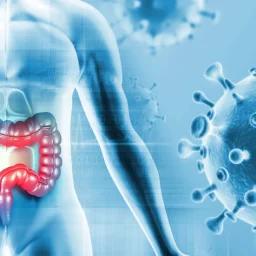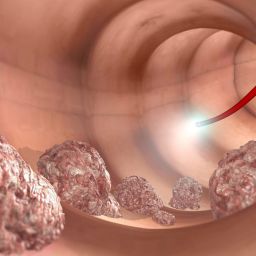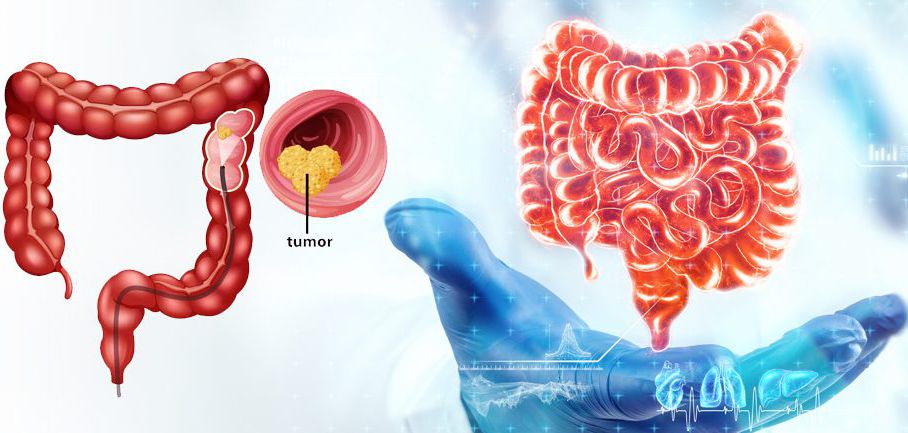
Chronic inflammation has become a central topic in medical research due to its strong association with a variety of diseases, particularly those that affect the gastrointestinal tract. One of the most concerning consequences of prolonged inflammation is its impact on colon health. Chronic inflammation in the colon can lead to conditions such as inflammatory bowel disease (IBD), irritable bowel syndrome (IBS), and, more seriously, colon cancer. Understanding how chronic inflammation affects colon health, its risk factors, and how it can be managed or prevented is crucial for maintaining overall digestive health.
In this article, we will explore the science behind chronic inflammation, its effects on the colon, how it contributes to disease, and preventive measures that can help reduce inflammation and support colon health.
1. What Is Chronic Inflammation?
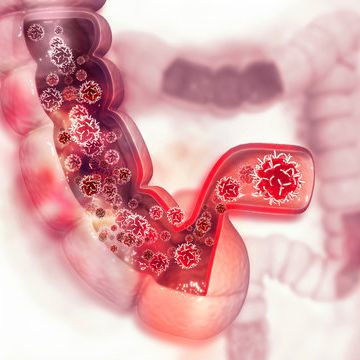
Inflammation is a natural response by the body’s immune system to injury, infection, or harmful stimuli. It is a protective mechanism that helps the body heal and fight off infections. However, when inflammation becomes persistent or uncontrolled, it can lead to chronic inflammation, which is detrimental to health.
Chronic inflammation occurs when the immune system continues to be activated over an extended period, even in the absence of an infection or injury. This ongoing inflammatory state can damage tissues and organs, leading to a variety of health issues, including those in the colon.
2. The Role of the Colon in Digestive Health
The colon, or large intestine, is a vital part of the digestive system. Its primary function is to absorb water and electrolytes from undigested food, forming solid waste that is later excreted through the rectum. The colon also hosts a diverse microbiome — trillions of bacteria that help with digestion, immune function, and the maintenance of gut health.
When chronic inflammation occurs in the colon, it disrupts its normal functioning, which can lead to digestive discomfort, nutrient malabsorption, and increased vulnerability to disease. The immune cells in the colon become activated inappropriately, and the lining of the colon may become damaged, leading to further complications.
3. Causes of Chronic Inflammation in the Colon
Several factors contribute to chronic inflammation in the colon. These include:
A. Diet and Nutrition
Poor dietary habits, such as a diet high in processed foods, sugar, and unhealthy fats, can trigger inflammation in the body. These foods can lead to an imbalance in the gut microbiome, causing an overgrowth of harmful bacteria that produce toxins. This imbalance, known as dysbiosis, can irritate the lining of the colon and cause inflammation.
On the other hand, a diet rich in fiber, fruits, vegetables, and healthy fats can help reduce inflammation and support a healthy gut microbiome. Fiber, in particular, acts as a prebiotic, feeding beneficial bacteria and promoting a balanced microbiome.
B. Autoimmune Disorders
Certain autoimmune conditions, such as Crohn’s disease and ulcerative colitis, are characterized by chronic inflammation in the colon. In these conditions, the immune system mistakenly attacks the healthy tissue of the colon, leading to persistent inflammation and damage. These diseases fall under the category of inflammatory bowel disease (IBD).
C. Chronic Stress
Chronic stress can lead to systemic inflammation by affecting the immune system. Stress hormones, such as cortisol, can increase the production of pro-inflammatory cytokines, leading to heightened inflammation in the body. The gut-brain axis, a communication system between the brain and the gastrointestinal tract, plays a significant role in this process.
E. Smoking and Alcohol Consumption
Both smoking and excessive alcohol consumption have been linked to chronic inflammation in the colon. Smoking impairs the immune response and can directly damage the lining of the digestive tract, while alcohol can disrupt the gut microbiome, leading to dysbiosis and increased inflammation.
4. How Chronic Inflammation Affects Colon Health
Chronic inflammation in the colon can have a profound impact on colon health, leading to various digestive and systemic issues. Here are some of the ways chronic inflammation affects the colon:
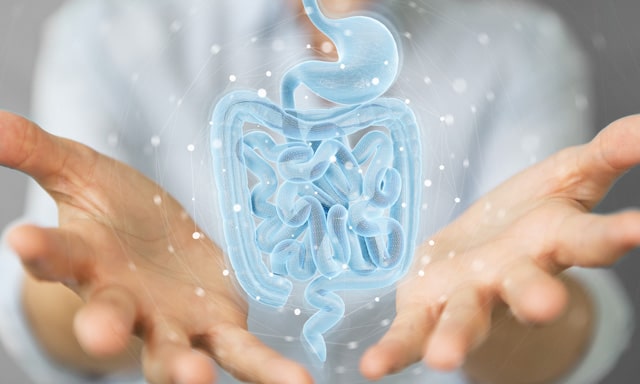
A. Increased Risk of Inflammatory Bowel Disease (IBD)
Chronic inflammation is a hallmark of IBD, which includes conditions like Crohn’s disease and ulcerative colitis. These diseases cause severe inflammation in the gastrointestinal tract, leading to symptoms such as abdominal pain, diarrhea, weight loss, and fatigue. Over time, untreated IBD can lead to permanent damage to the colon, including the formation of ulcers, strictures (narrowing of the colon), and fistulas (abnormal connections between different parts of the intestines).
B. Disruption of the Gut Microbiome
Chronic inflammation can disrupt the balance of the gut microbiome, which is essential for digestive health. A healthy microbiome helps digest food, regulate the immune system, and protect the colon from harmful pathogens. Inflammatory conditions in the colon can lead to dysbiosis, where harmful bacteria outnumber beneficial bacteria, contributing to further inflammation and digestive issues.
c. Colon Cancer
One of the most serious consequences of chronic inflammation in the colon is an increased risk of colon cancer. Chronic inflammation can cause DNA damage and mutations in the cells of the colon. Over time, this can lead to the uncontrolled growth of abnormal cells, ultimately resulting in the formation of tumors. Inflammatory conditions such as IBD significantly increase the risk of developing colon cancer, especially if the inflammation is poorly managed.
5. Symptoms of Chronic Inflammation in the Colon
Chronic inflammation in the colon can manifest in various symptoms, including:
- Abdominal pain and cramping
- Diarrhea or constipation
- Bloating and excessive gas
- Unexplained weight loss
- Fatigue
- Blood in the stool
- Mucus in the stool
If you experience any of these symptoms on a regular basis, it is important to consult a healthcare professional for further evaluation and diagnosis.
6. Managing and Preventing Chronic Inflammation in the Colon
While chronic inflammation can pose serious risks to colon health, there are several strategies to manage and prevent it. These include:
A. Anti-inflammatory Diet
A diet rich in anti-inflammatory foods can help reduce chronic inflammation in the colon. Key components of an anti-inflammatory diet include:
- Fiber: Consuming a diet high in fiber from fruits, vegetables, whole grains, and legumes can help reduce inflammation and support colon health.
- Healthy Fats: Omega-3 fatty acids found in fatty fish, flaxseeds, and walnuts have anti-inflammatory properties that can help calm chronic inflammation.
- Antioxidants: Foods rich in antioxidants, such as berries, leafy greens, and nuts, can help neutralize free radicals and reduce inflammation.
- Turmeric and Ginger: Both turmeric and ginger contain natural compounds that have potent anti-inflammatory effects.
B. Probiotics and Prebiotics
Maintaining a healthy gut microbiome is essential for controlling inflammation in the colon. Probiotics, found in foods like yogurt, kefir, and fermented vegetables, can help balance the gut microbiota. Prebiotics, which are found in fiber-rich foods, feed beneficial bacteria and promote a healthy gut environment.
C. Stress Management
Since stress can contribute to inflammation, practicing stress management techniques such as yoga, meditation, deep breathing exercises, and mindfulness can help reduce the impact of chronic stress on the gut.
Chronic inflammation is a key contributor to many health problems, including those affecting the colon. By understanding how chronic inflammation impacts colon health and adopting lifestyle changes such as following an anti-inflammatory diet, managing stress, and avoiding harmful habits like smoking and excessive alcohol consumption, individuals can reduce their risk of developing chronic inflammatory conditions like IBD and even colon cancer. Early detection and timely management are essential for maintaining optimal colon health and preventing long-term damage.
Taking proactive steps to reduce inflammation and protect your colon is essential for promoting overall health and well-being. Always consult with a healthcare professional to discuss any concerns regarding your colon health, and consider regular screenings to detect any early signs of disease.

